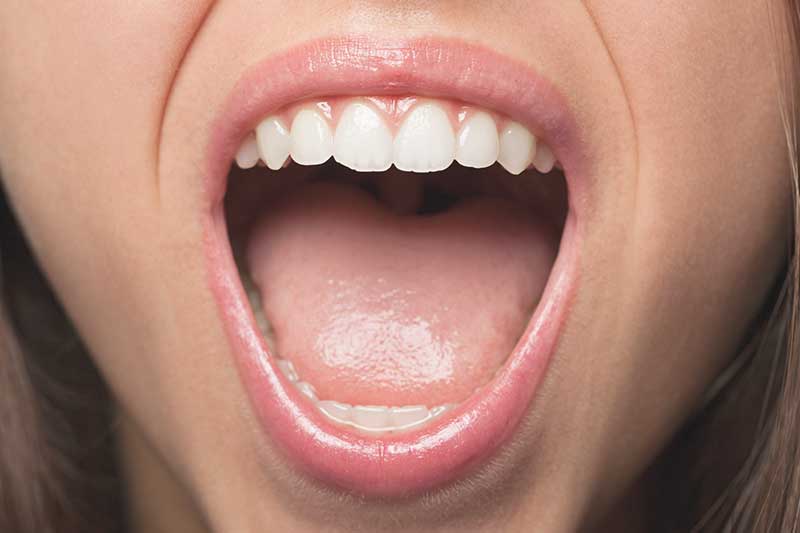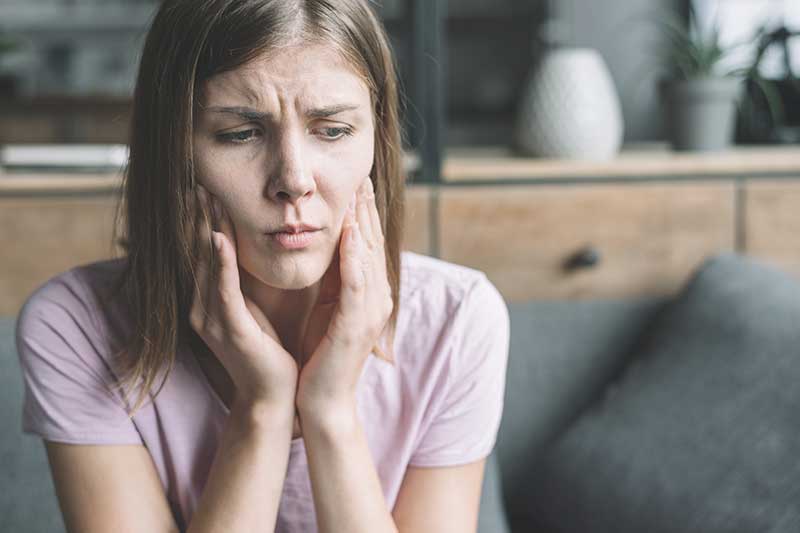
Everything you need to know about tongue cancer
Cancer can form in any part of the body and even in seemingly strange places like the mouth, and the tongue is no exception. In this article, we invite you to learn more about tongue cancer: what it is, symptoms, diagnosis, treatment and alternative therapies.
What is tongue cancer?
Tongue cancer is a type of mouth cancer, that forms when cells in that part of the body start to multiply uncontrollably. Usually, cancer starts in the cells of the back third of the tongue. Sometimes, it can occur at the base of the tongue and, very rarely, it occurs on the dorsum of the tongue. Since tongue cancer commonly occurs in the back part of the tongue, it is common for this type of cancer to develop and extend to other organs such as the larynx

Types of tongue cancer
There are two forms of tongue cancer:
1. Scallous cell carcinoma
These cancers start in the cells that are flat, similar to scales that form the lining of the mouth and throat.
2. Cystic adenoid carcinoma
This is a common small tumour and is located in the salivary gland.
Symptoms of tongue cancer
Although this is not the most common cancer, it usually manifests itself in heavy smokers and drinkers. This disease has a good recovery rate if detected early, so it is important to know what the initial symptoms are, especially if you or someone close to you are classed as at risk.
Detecting symptoms early
- Feeling a lump in your mouth
- Difficulty swallowing
- Cuts or ulcers on the tongue, which don’t hurt, but don’t go away
- White or red spots on the tongue
- Growth, bulge or thickening in some part of the tongue
- Loss of feeling or numbness of the tongue
- Difficulty chewing or swallowing food
- Difficulty moving the tongue or jaw
It’s not always easy to identify the warning signs, because they can be confused with symptoms of other diseases. Therefore, regular dental and medical check-ups are essential. A trained dentist will be able to identify warning signs of mouth or tongue cancer.
Causes of tongue cancer
The causes of tongue cancer are not clear, but there are some factors known to increase the chances of suffering from this type of cancers, or symptoms, which are listed below:

Risk factors
- Consuming tobacco (including cigarettes, cigars, pipes, chewing tobacco, snuff etc.)
- Excessive consumption of alcoholic beverages
- Mycosis, a disease caused by a fungus
- Nutritional deficiencies, vitamin A deficiency has been considered a high risk factor
- Viral infections such as the Human Papilloma Virus (HPV)
- Weak immune system (often caused by taking immunosuppressants: drugs that weaken the immune system)
- Poor oral hygiene
Prevention of tongue cancer
There is no one way to prevent this type of mouth cancer, but you can lower your risk by:
- Avoiding tobacco and alcohol consumption
- Seeing a dentist regularly
- Regularly checking dentures and dental implants
- Maintaining a proper oral hygiene
It is very important to go see a doctor if you have a cut or ulcer on your tongue that doesn’t hurt but doesn’t go away in approximately two weeks. Remember, the earlier you consult a specialist the greater chance you´ll have of receiving treatment in time.
Diagnosis and exams
If cancer is suspected in the tongue, the doctor will perform one or more of the following tests:
- Examination of the mouth and pharynx
- Biopsy (extraction of tissues to be analysed)
- Imaging studies (to determine the extent of the cancer):
- Computerized tomography (CT) scan
- Magnetic resonance imaging (MRI)
- Ultrasound
Treatments for tongue cancer
This depends on many factors. The size and extent of tongue cancer should be taken into account. Treatments for tongue cancer include:
Surgery
The most common treatment for tongue cancer involves the surgical removal of the tumor, which is ideal if the cancer is small enough. If the tumor has spread to the surrounding lymph nodes, major surgery should be performed, which should be accompanied by other treatments such as radiotherapy and chemotherapy.
Radiotherapy
Radiotherapy can be used as a treatment before surgery or in combination with chemotherapy. It consists of the use of high-energy X-rays to destroy cancer cells.
Chemotherapy
This form of treatment is administered to eliminate malignant cells intravenously, attacking cells that may remain after surgery or radiotherapy. It can also be used before surgery to decrease the size of the tumor.
Targeted therapy
In this treatment, drugs or other substances are used to identify and attack specific cancer cells without damaging normal cells.
Depending on the type of treatment used, the patient may subsequently require:
- Speech therapy
- Therapy to help chew and swallow
- Help to relieve dry mouth
- Plastic surgery

Complementary treatments
These are therapies that go hand in hand with conventional treatments, focusing more on the relief of side effects caused by conventional treatments. It is very important that you consult your specialist regarding any supplement or additional therapy that you are going to implement alongside your medical treatment.
Balanced diet
Adopt a balanced diet, eat at least 2 ½ cups of fruits and vegetables a day, as well as several servings of plant-based whole foods such as breads, cereals, grains, rice, pasta or beans. Limit the consumption of red meat and processed meats (sausages).
Exercise
Physical activity is recommended for the general well-being of your body, but it is even more important when you have cancer. Exercising will improve blood flow and help your metabolism to work more efficiently.
Mind-body medicine
Meditate and reflect. Remember that you are the one who knows you best and who better to help to heal you. Feel every part of your body, learn to understand yourself; maybe a little self-knowledge can help you understand what is happening with your body and how to fight diseases in the best way.
Cannabis
Cannabinoids reduce general discomfort, since they help to reduce nausea and vomiting, they stimulate appetite and help relieve the pain caused by some chemotherapy and radiotherapy treatments. CBD can encourage the death of tumor cells, reducing their potential to spread and metastasize.
Coping mechanisms and support for tongue cancer sufferers
We know that being diagnosed with cancer can pose an emotional challenge. Do not worry, it is important that you keep your friends and family close by and that you share your thoughts and feelings with the people you love most. Being listened to and being supported will help you feel stronger.
Do you want to know a little more about cancer and how to fight it? We are to guide you and lend our support.
